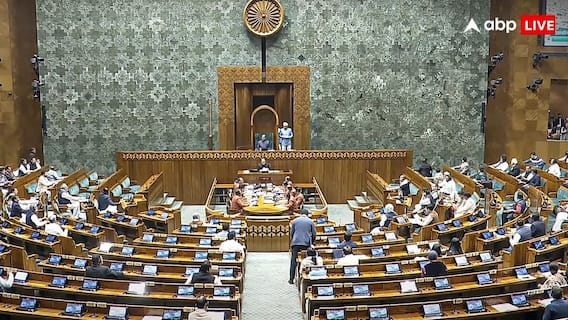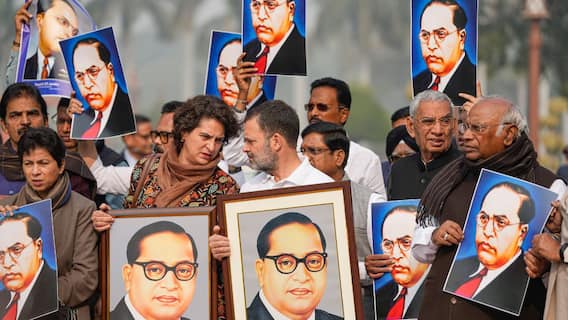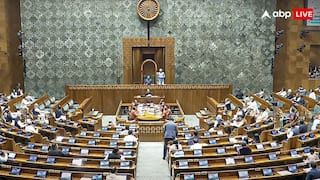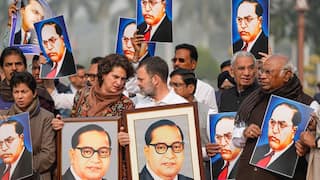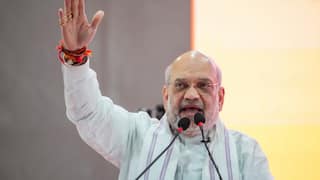Iran-Saudi Deal: What The China-Brokered Pact Means For India As Two Warring West Asian Neighbours Reconcile
China has been enjoying deeper economic engagement with the Arab world, and by acting as a guarantor for the Iran-Saudi deal it has thus hogged the limelight as a peacemaker.

The much touted mid-March deal brokered in Beijing between two estranged neighbours of West Asia, Iran and Saudi Arabia, the leaders of Shia and Sunni world, would simply lead to restoration of diplomatic ties between them or would result in new alliances in the region with an anti-America agenda? The two Islamic nations snapped their ties in 2016 when the Saudi embassy in Tehran was attacked after a Shia cleric was killed in Riyadh. However, the changing geopolitical dynamics in the region encouraged the two nations to begin negotiations for the resolution of disputes, which Baghdad was facilitating earlier at a non-diplomatic level.
When talks progressed, the Saudis wanted a guarantor for the implementation. Both Iran and Saudis agreed to utilise the services of China, which readily offered to act as the guarantor. China has thus hogged the limelight as a peacemaker, trying to improve its profile and credibility in the region. China has been enjoying deeper economic engagement with the Arab world. China has already brought Iran into its fold, exploiting the deep anti-American sentiments, and negotiated a 25-year investment deal worth US$400 billion. Since the Saudis are extremely dependent on the US-supplied weapon platforms and systems, it would be difficult for the Saudis to decouple from America. However, since the Saudi Prince is not happy with America’s tough stance on the murder of US-based Saudi journalist Jamal Khashoggi in Saudi captivity, the latter has sidelined the US. And the Iranians would also never have accepted the US as a mediator.
ALSO READ | India Can Resist West Pressure, It’s Not Taiwan Or South Korea: Iran Envoy
Can China Resolve All Intra-Arab Disputes?
With the Iran-Saudi deal in place, many are wondering if this means China will also succeed in resolving all intra-Arab disputes, chiefly because of the Shia-Sunni rivalry. Certainly, this deal is not going to evolve into a Saudi-Iran alliance. At the most, this will help restore normal relations between Iran and Saudi Arabia, who have also decided to restore two previous economic cooperation agreements.
West Asian observers ask if the deal could lead to resolution of the Yemen war, or will it lead to calming of Iran Saudi divisions over Libya. Much depends on the attitude of Iran’s main ally in the region — Hezbollah. In fact, the Shia-Sunni rivalry in West Asia and North Africa has instigated many conflicts in the region for the last one decade. The Iran-Saudi tension has led to a humanitarian disaster in Yemen, as the pro-Iranian Houthi militants fought with the pro-Saudi tribes in 2016. Iraq is also a victim of this dispute, due to which the country remains unstable. Lebanon is also in turmoil most of the time, while Syria is engulfed in a war-like situation because of a lack of negotiated political reconciliation.
Middle East observers are expecting a permanent resolution of the Yemen conflict if the Iran-Saudi deal is carried forward to its logical conclusion seriously and honestly. They also expect the return of Syria to the Arab League. The positive progress in implementation of the deal may also lead to constructive security arrangements between Iran and other Arabian countries.
The Shia-Sunni dichotomy in the Arab world is much more complex than one could imagine. There exists deep animosity between Shia-led Iran and Sunni-led Saudi Arabia, which cannot be erased overnight. Says Al-Jazeera’s Middle-East expert Al-Hashem: “To assume that the deal between Iran and Saudi Arabia is a big loss for America is in my opinion an exaggeration, for many reasons. If Washington wanted to prevent a Saudi-Iranian reconciliation, it could have vetoed the talks when they were taking place in Iraq, which did not happen.”
Due to the Saudi-Iran reconciliation, the Americans would be more worried of future moves by China as it would allow its rival to occupy the space that was until recently considered to be under American influence.
ALSO READ | US-China Tech War Is Opening A Big Door For India, And We Must Take Advantage
Will The Iran-Saudi Deal Impact India?
The US had earlier tried to bring peace to the region by inking the Abraham Accord in 2020, which led to the establishment of diplomatic relations between the UAE and Bahrain with Israel. It later brought India into the picture by constituting a four-nation alliance called I2U2 — i.e. Israel, India, the USA and the UAE. This move positioned India on a higher pedestal in the region. India has also entered into a trilateral cooperation agreement with France and the UAE.
In recent times, India has made silent moves to make deep strategic inroads in the Gulf region through defence and military cooperation. India has been conducting joint military exercises with countries ranging from Oman and the UAE to Saudi Arabia. The Gulf states are looking towards India as a good investment destination as leaders of both the regions have exchanged visits to each other’s capitals.
Now the question arises if the Iran-Saudi deal should ring an alarm bell or if India should lose its sleep over the Chinese role in brokering the deal. The answer is no.
India has in recent years developed strong military bonds with various Gulf partners, and is looking for joint defence production facilities in India to fulfil the security needs of the region. India’s strong 9 million overseas community in the Arab region are the lifeline of the Arab world, which can be exploited by Indian strategists. As far as Iran is concerned, relations have been somewhat strained because of the US sanctions on Iran that prevented India from normalising economic relations.
The Iran-Saudi reconciliation will facilitate Indian diplomats to better deal with Shia Iran, which was not too happy with India’s growing engagement with Sunni Saudis and UAE. Maintaining warm relations with Iran is significant and vital in view of India’s efforts to get direct land connectivity with the Central Asian region. Not only Iran and Saudi Arabia, but all five central Asian states — Kazakhstan, Kyrgyzstan, Tajikistan, Turkmenistan and Uzbekistan — are very important from the perspective of securing energy security.
Though India has not outrightly welcomed the deal, MEA Spokesperson Arindam Bagchi, without acknowledging China’s role in bringing Iran and Saudi Arabia closer, issued a guarded reaction saying it had always advocated dialogue for resolving differences. “India has good relations with various countries in West Asia. We have deep abiding interests in the region,” he said.
According to Indian observers, the deal has opened the door for resolving all intra-Arab disputes and may foster peace and stability in the region, which will facilitate good economic and trade cooperation between India and the West Asian region. India and Indians may find better opportunities and atmosphere for a deeper economic engagement with the region, in a better peaceful and stable environment, if Shia- Sunni reconciliation is extended to the entire Arab region.
The author is a senior journalist and strategic affairs analyst.
[Disclaimer: The opinions, beliefs, and views expressed by the various authors and forum participants on this website are personal.]
Trending News
Top Headlines





